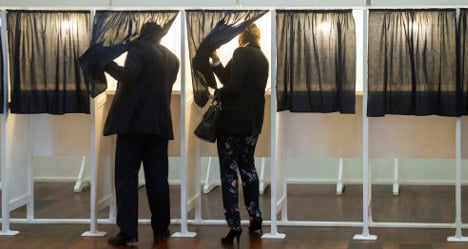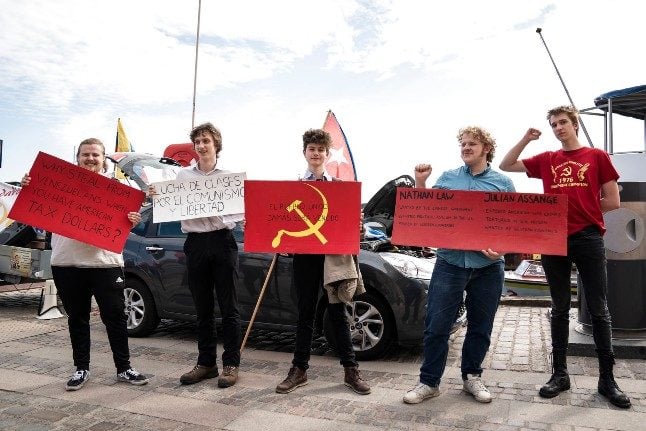The EU elections are almost upon us, and if you're from elsewhere in the EU, you have the right to vote in either Spain or your home country.
DEMOCRACY
‘The EU elections are the only chance I get to vote’
On the eve of European elections that have failed to inspire much enthusiasm in Spain we asked a group of expats whether they'll be taking time out on Sunday to vote for their representatives in Brussels.
Published: 23 May 2014 16:54 CEST

Gibraltar's Prime Minister Fabian Picardo (L) and his wife vote at a polling station in Gibraltar on Thursday. Photo: Marcos Moreno/AFP
To get a feel for how expats in Spain are feeling about the vote we spoke to a mix of EU expats around the country.
Karoline, Seville, from Germany
I would definitely vote but I didn't get the documentation from the town hall here in Seville, and that's despite the fact I am on the municipal register, and have voted in the mayoral elections here previously.
Last year, I made a big fuss about being able to vote in the German general elections by getting in touch with German Embassy in Spain, but this time around I haven't bothered.
Still, I think the elections are very important. The EU is having more and more of an impact on the way we live, and how countries are governed. On top of that, we should participate in the political process and not just complain about things.
Anne, Madrid/Andlusia, from England
I am definitely going to vote in the European elections. I've been living in Spain for 21 years and I've lost my vote in the United Kingdom so this is the only time I can vote, and I want to at least vote somewhere!
I also think the EU elections are important. There's a lot of ignorance about the EU and what it does, but we need to take it seriously if we are going to get the Europe we want. That includes getting out there and voting.
Léa, Madrid, from France
I'm studying abroad here in Spain this year and I really wanted to vote but because of paperwork complications, I haven't managed to enrol in France, which is what I wanted because I wanted to choose a French candidate.
It's a shame because I'm actually really interested in European politics. As an Erasmus student, and as someone who has travelled a lot in the EU, I can see that the European project is very important but that it also has a lot of problems. The main one is a lack of communication about what Europe is. I think that's why you see such big differences in how people in different parts of Europe see the EU. It's also partly why many Spaniards are angry about the EU and a lot of my Spanish friends here won't vote this weekend.
Joe, from Ireland
For sure I will be voting on Sunday. Irish people living abroad are not allowed to vote in our national parliament or presidential elections. Nothing motivates someone to vote more than not being allowed to vote. So I don't plan to miss the opportunity that I do have!
Marina, Madrid, from Finland
To be honest, I won't be voting because I am heading to Lisbon to watch the (Champions League) football final.
I would have voted — it's an important right we have — but I didn't receive a voting card in the mail before the previous elections, and I haven't followed up on that. I also haven't been very impressed with the information we have received in the mail about the elections; I think the information we get in Sweden is probably better.
Dan, Seville, from Ireland
I haven't managed to register for the European elections this time, but to be perfectly honest I haven't made the effort this time. I suppose it's one of the pitfalls of being an expat: you never know what you are going to do next and where you are going to be, and things like voting slip between the cracks.
At the same time, I actually think it's time I made the effort to become better informed about Europe. The fact is, the life I have was actually made possible by the EU, and by the freedom of movement I've enjoyed — first by doing the Erasmus programme and now by working in Spain.
Obviously Europe is very important in our lives, but I also think the politicians and the schools need to be informing people about why it matters.
Url copied to clipboard!


 Please whitelist us to continue reading.
Please whitelist us to continue reading.
Member comments